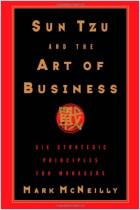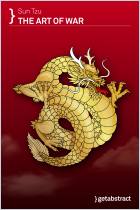
Read offline
Recommendation
This compilation, which condenses sections of Prussian General Carl von Clausewitz’s major work, On War, is well worth reading, though dense and sometimes difficult to follow. Clausewitz, a fascinating thinker, approaches his subject with wit and clarity. By his own description, his real contribution isn’t his analysis, but the analytical method he applies to problems. That method is essentially dialectical, where the leader considers opposite and extreme courses of action before determining what action to take. The text is interspersed with sidebars. Some elaborate on historical details cited by Clausewitz, some offer views of other Clausewitz experts, and some provide complementary viewpoints from people in different fields. The sidebars provide a welcome respite from Clausewitz’s frequently complex ideas. Though the editors freely admit that business and war are different, and that mapping one to the other is a mistake, it takes great discipline to read this book without performing just that kind of mental mapping. After September 11, 2001, business-as-war metaphors seem overblown. Many in business have stopped looking at competition as a death struggle. Instead, they treat it as a mutual effort to foster growth in their sectors so everyone then benefits from the resulting synergies. getAbstract.com finds Clausewitz’s approach clearly relevant to anyone struggling against an intelligent and resourceful opponent, in business, politics or government, as well as to those pondering ways to go to war.
Summary
About the Authors
A faculty member at the University of Virginia’s Darden School of Business, Tiha von Ghyczy is a fellow of The Strategy Institute of The Boston Consulting Group where Bolko von Oetinger is a Senior Vice President. Oetinger has been author and editor of numerous books and articles on strategy and innovation. Christopher Bassford, professor of strategy at the Naval War College in Washington, D.C., wrote Clausewitz in English: The Reception of Clausewitz in Britain and America and The Spit-Shine Syndrome: Organizational Irrationality in the American Field Army.














Comment on this summary